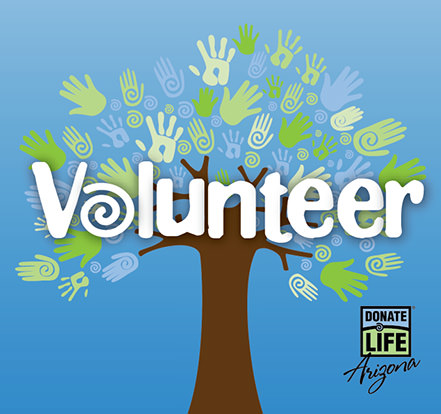What is the DonateLifeAZ Registry?
Arizona law allowed for the establishment of a donor registry to be operated by the federally designated organ procurement organization (OPO) for the state. As the OPO serving Arizona, Donor Network of Arizona (DNA) administers the registry at no cost to Arizona. The registry is one way donation professionals can identify if a person has authorized donation at the end of their life. There are other ways Arizonans indicate their decision to donate (e.g., living will, advanced directive, etc.). However, the most common way it works today is through the DonateLifeAZ Registry, which launched in April 2003.
How do I register as an organ and tissue donor?
Today, if a person visits an Arizona Department of Transportation Motor Vehicle Division (ADOT MVD) field office, or select authorized third-party (ATP) locations, they can register as an organ and tissue donor through various ADOT MVD or ATP transactions with a customer service representative or on a self-service kiosk. This is the most common way for Arizonans to register. In fact, more than 95% of new organ and tissue donor registrations in our state happen through an ADOT MVD or ATP transaction.
Other ways to register include online at DonateLifeAZ.org and at community events where Arizonans can register by paper form or the SWIPE to Donate Life app with the assistance of a Donate Life Arizona volunteer, DNA employee, or a person with authorization to access the private app.
What does it mean to be a registered organ and tissue donor on the DonateLifeAZ Registry?
Registering as an organ and tissue donor is first-person authorization (FPA) for donation and is a legally binding decision to save and heal lives. This decision can only be changed by the person who registered. It is an end-of-life decision similar to a will.
FPA is defined in the Uniform Anatomical Gift Act (UAGA), a law that all states in the U.S. have adopted. Per the UAGA, donor registration, or any form of FPA, is a legally binding authorization at the time donation becomes a possibility. With FPA, DNA acts in good faith to honor the final decision of that donor and ensures a person’s decision is respected and that their organs and tissues can potentially save and heal lives after they pass away. FPA and the UAGA play vital roles in supporting the success of the country’s organ donation system focused on saving lives.
What does the DONOR ♥ insignia mean on my ID?
The DONOR ♥ insignia on a driver’s license or state ID indicates the person registered as an organ and tissue donor through an ADOT MVD transaction. It is one measure to clearly communicate that the person’s identifying information was added to the DonateLifeAZ Registry. However, since there are multiple avenues for someone to add or remove themselves from the registry, a DONOR♥ on a person’s credentials does not confirm their registration status, rather the donor registry itself is the confirmation.
Whether it’s printed on a person’s license or state ID does not change DNA’s need to confirm someone’s registry status once donation becomes a possibility.
Do you communicate with people who registered to confirm that they signed up as donors?
No matter the way in which someone registers as an organ and tissue donor, if it’s their first time registering in Arizona, they will receive either a confirmation letter or confirmation email. It’s dependent on how they registered. This communication explains in depth the decision they made, offers instructions on how to modify their registry, as well as how to remove their registration.
Either way, it is our hope that registered Arizonans communicate that decision with their family.
Can someone override my decision to donate my organs and tissue?
Per the UAGA, donor registration is a legally binding authorization at the time donation becomes a possibility, and it cannot be revoked by anyone other than the registrant. If someone is registered, DNA acts in good faith to honor the final decisions of donors.
How can I document that I don’t want to donate organs and tissue?
There are multiple ways for people to document a refusal to donate organs and tissue. They can add a refusal to donate in a will, advanced directive, or other legal instructions related to end-of-life decisions, to name a few.
How can I modify or remove my organ and tissue donation registration?
If anyone believes they have registered by mistake, the confirmation information includes steps to take to modify their registration and how to remove it entirely. This is a measure to ensure that only the identifying information of people who wish to be registered donors is stored in the DonateLifeAZ Registry.
To view or modify your registration information, or to remove your registration as an organ and tissue donor in the DonateLifeAZ Registry, you can log in with the required information online at DonateLifeAZ.org or click here. You may email contact.us@dnaz.org or call 602-241-5550 for assistance.

Become a Donate Life Arizona Volunteer Today!
Help us spread the lifesaving and life-healing message of organ, eye and tissue donation! Visit our Get Involved page to learn more about volunteering with Donate Life Arizona.
Become A Volunteer